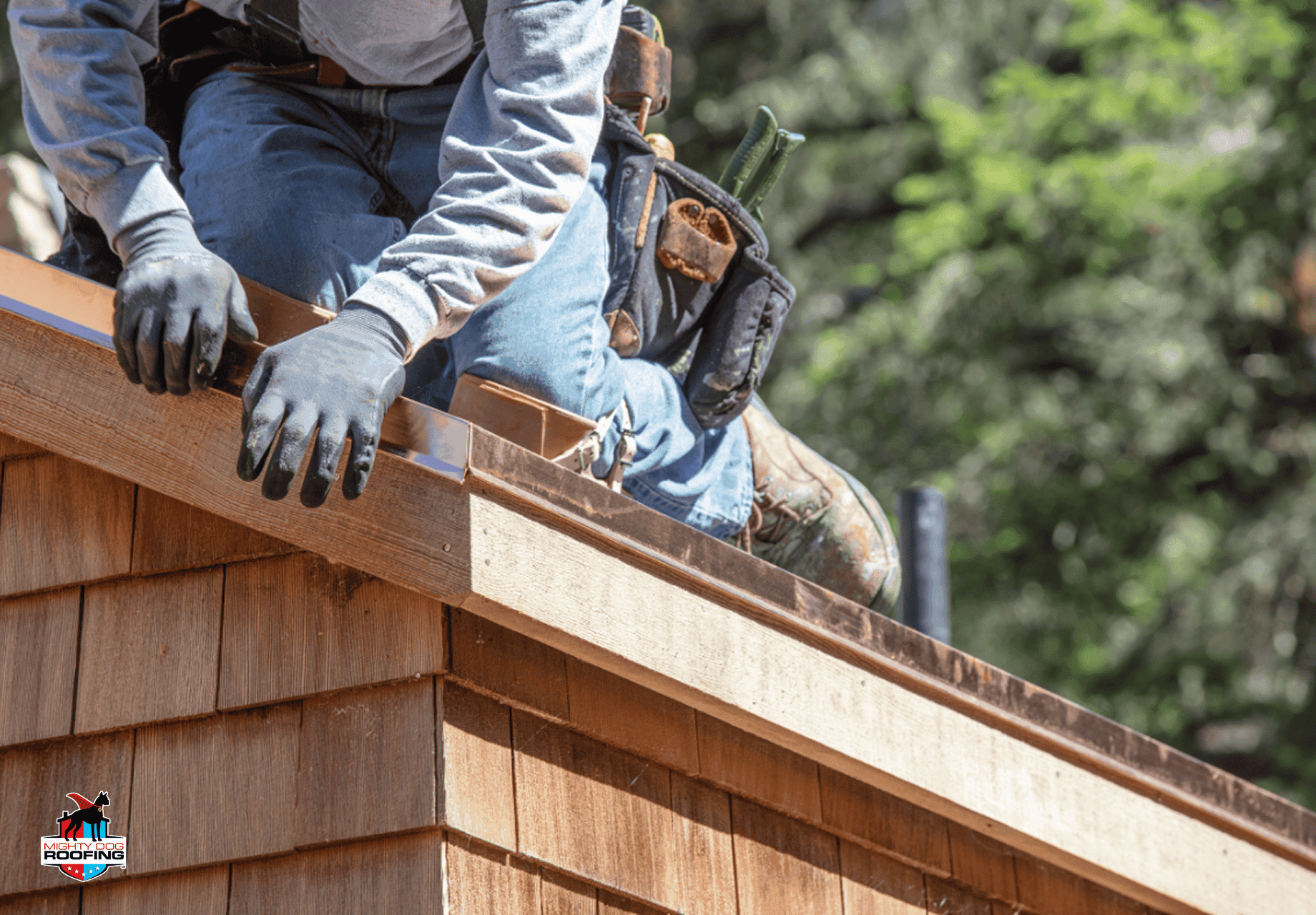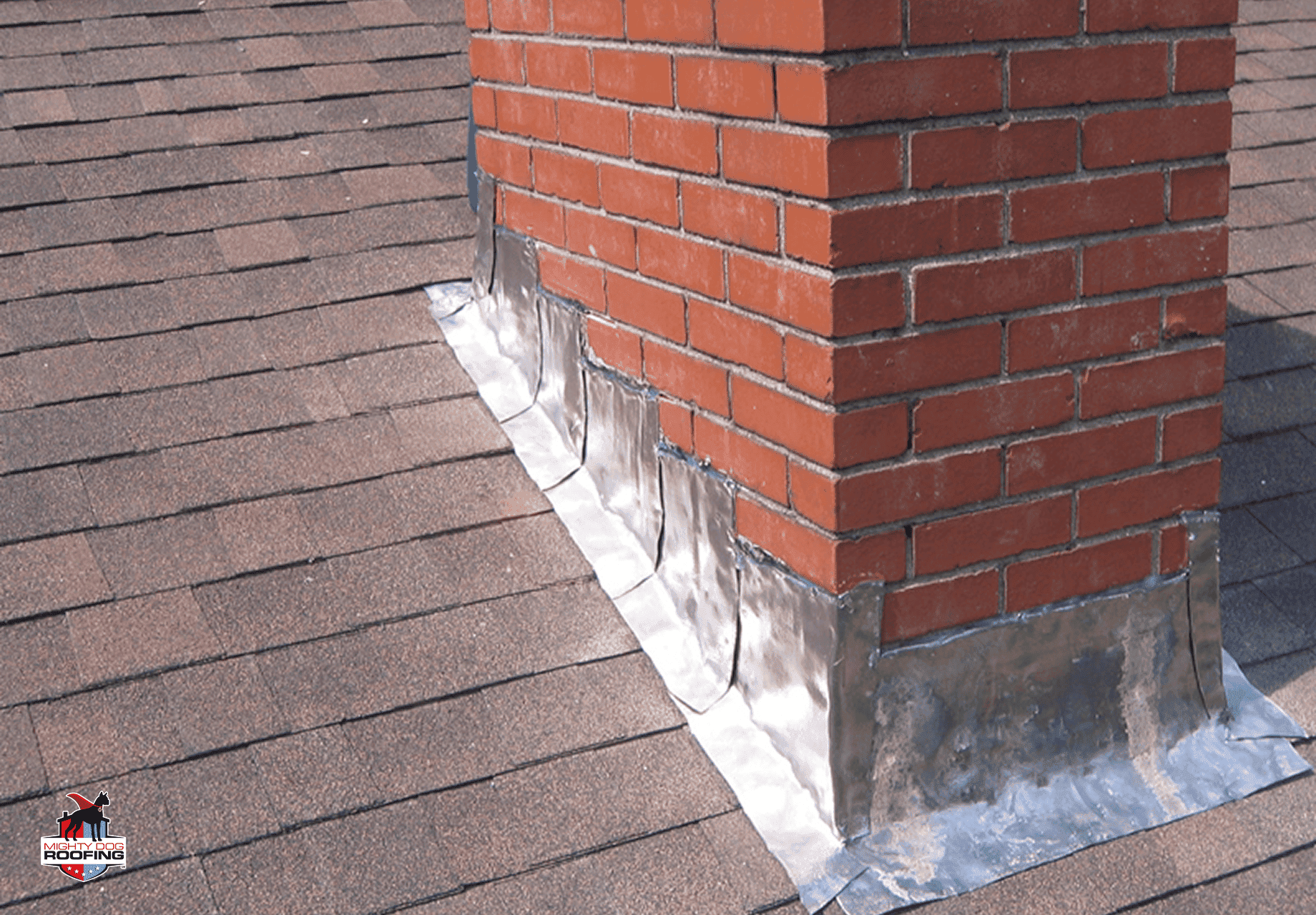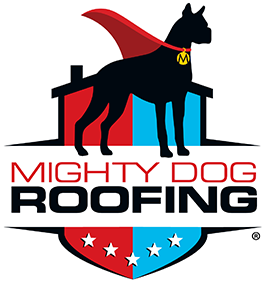Protecting your Deptford residence requires meticulous roof installation, with roof flashing representing the most frequently neglected yet vital component. These specialized metal or rubber elements create weatherproof barriers around chimneys, valleys, and vent pipes. Without expert craftsmanship, even top-tier shingles cannot stop moisture infiltration, potentially leading to structural compromise and costly repairs. Mighty Dog Roofing of South Jersey employs knowledgeable professionals who provide the essential safeguards your property demands against New Jersey's unpredictable climate conditions.
Understanding Roof Flashing: Types and Functions in Deptford Homes
At vulnerable junctions where building components intersect, protective metal shields defend your residence from moisture penetration. In Deptford's variable weather—ranging from intense summer downpours to winter freezing conditions—flashing functions as an essential protective barrier. Various classifications include stepped barriers at wall junctions, valley protectors where roof planes converge, defensive shields surrounding masonry chimneys, perimeter protection via drip edges, and waterproof collars around vent pipes.
The architectural diversity throughout this historic New Jersey community necessitates tailored weatherproofing strategies. Colonial-style residences require precision installation at structural junctions, ranch-style homes need careful masonry protection, and contemporary dwellings demand proper sealing around skylights. Mighty Dog Roofing has perfected techniques for each architectural style, guaranteeing your moisture barrier system maintains structural soundness. Our proficiency with residential roofing ensures enduring protection for your property investment.
Critical Flashing Areas: Vulnerable Points in Deptford Roofing Systems
The regional climate continuously challenges roofs with potential water infiltration. Vulnerabilities emerge where elements intersect or penetrate your roofing structure. Essential zones—chimneys, skylights, dormers, valleys, and vent pipes—require specialized metal barriers and seals to prevent water damage. Without adequate waterproofing at these connection points, freeze-thaw patterns and precipitation exploit weaknesses, generating structural concerns.
Key Vulnerability Points in Deptford Residential Roofs
Vulnerable Area | Why It's Critical | Common Problems | Prevention Strategies |
Chimney/Roof Intersection | Creates a large opening in roofing system; multiple angles require complex flashing | Rusted flashing, deteriorated sealant, improper installation | Multi-component flashing system with proper overlapping and high-quality sealants |
Roof Valleys | Collect high volumes of water; snow and ice accumulation | Corroded metal, improper overlap, debris buildup | Wide, durable valley flashing with proper underlayment; regular cleaning |
Skylights | Factory flashing may be insufficient; creates full roof penetration | Inadequate flashing kits, improper integration with roofing | Professional-grade flashing extensions beyond manufacturer kits; proper counterflashing |
Dormers & Wall Intersections | Complex angles; multiple materials meeting | Water getting behind step flashing; improper integration with siding | Properly sized and installed step flashing; integration with house wrap and siding |
Vent Pipes | Common source of small leaks; rubber components deteriorate | Cracked boots, pulled nails, deteriorated rubber | High-quality metal/rubber combinations; proper sizing; secure fastening |
Seasonal variations in this South Jersey area present distinct maintenance challenges. Summer thunderstorms test valley connections, while winter freezing affects chimney and vent interfaces. The recurring freeze-thaw cycles characteristic of the region cause separation between protective metal barriers and construction surfaces. The maritime air from the Delaware River hastens the deterioration of protective elements around structural transitions.
Flashing Materials: Options and Performance in Deptford's Climate
Roof flashing material selection determines longevity in Deptford's humid summers and frigid winters. The appropriate material delivers essential leak prevention with varying durability, corrosion resistance, and compatibility with South Jersey roofing materials.
Top Flashing Materials for Deptford Homes
- Copper Flashing - Remarkable durability (exceeding 50 years) with protective oxidation layer. Withstands coastal atmospheric influences. Perfect for premium and historic properties.
- Aluminum Flashing - Lightweight, resistant to corrosion, 20-30 year service life. Functions effectively in most applications but may degrade against chemically-treated lumber.
- Galvanized Steel - Economical option, 15-20 year service expectancy. Coastal salt exposure can accelerate oxidation without protective coating, requiring additional maintenance.
- Lead Flashing - Pliable and robust (30-50 years), superior for complex roof features. Environmental considerations exist despite excellent performance in coastal environments.
- Rubber and Synthetic Materials - Utilized for vent pipe protection, 10-15 year lifespan. Susceptible to New Jersey's ultraviolet exposure and temperature fluctuations.
Our contractors advocate for copper or aluminum metal barriers for superior performance in residential structures. Your selection depends on architectural specifications, financial considerations, and visual preferences. When expertly installed, these premium metallic shields protect your home from moisture infiltration in South Jersey's climate for generations.
Common Flashing Failures and Warning Signs for Deptford Homeowners
Temperature variations create openings around metal roof components and seals, which precipitation gradually enlarges, causing fasteners to become unstable. Ultraviolet radiation degrades sealants while freeze-thaw sequences expand existing gaps. The briny coastal atmosphere accelerates metal deterioration, contributing to overall degradation. Monitor for water marks, corrosion spots, compromised shingles, deteriorated caulking, white mineral accumulation on chimneys, and indications of moisture around roof penetrations.
Property owners should examine ceilings beneath valleys and chimneys following storms, and inspect attics for discoloration or fungal growth during dry periods. Utilize binoculars to identify problem areas from ground level. Unaddressed issues cause decaying decking, structural compromise, mold proliferation, elevated energy expenses, and electrical hazards. Considering our regional climate, minor problems around openings can rapidly worsen, necessitating professional roof repair from qualified contractors to prevent water from inflicting extensive damage to your roof system.
Flashing Installation Best Practices for Deptford Roofs

Expert metal installation methodologies are essential for residences in Deptford, where seasonal freeze-thaw cycles demand careful attention to material expansion. Valley flashing must extend 10 inches from the centerline with properly constructed upstands, avoiding fastener placement near central regions. Chimney flashing incorporates four integrated elements, including a cricket formation to redirect water flow. Stepped installations require accurate overlap beneath the shingles, while vent pipe barriers need suitable underlayment to preserve integrity. All materials must exhibit corrosion resistance with protected fasteners, ensuring the roof's extended durability and protection against moisture penetration.
New Jersey regulations mandate corrosion-resistant metal barriers, vertical extensions at walls, double-layer valley application, and chimney counter-sealing in mortar. Gloucester County requires ice barrier underlayment. Municipal ordinances stipulate permits with inspections. Professional installation by qualified roofing contractor like Mighty Dog Roofing ensures compliance with warranty protection while surpassing code requirements.
DIY Flashing Inspection: What Deptford Homeowners Can Check Themselves
Prioritize safety when examining metal seals around roof junctions. Homeowners should conduct inspections from ground level—crucial for steep Colonial and Victorian residences. Binoculars used after rainfall reveal issues before water damage progresses. Monitor metal roof connections seasonally from summer thunderstorms to winter nor'easters, as conditions expose various concerns.
Key Inspection Points for Deptford Homeowners
- Check the chimney for rust stains, gaps in metal, or deteriorated mortar where the counter flashing meets the brickwork.
- Examine valleys for buildup of leaves and debris, loose flashing, or worn shingles that might prevent proper water flow.
- Inspect where walls meet the roof for signs of failed flashing, such as water marks on siding or separated metal pieces.
- In daylight, search the attic around roof penetrations and flashing areas for any visible light coming through.
- Monitor your interior ceilings for water stains or discoloration after rain, as these often indicate faulty flashing on the roof above.
DIY assessments are valuable, but professional roof inspection is necessary when issues appear or every 3-5 years. Mighty Dog Roofing identifies concealed problems including moisture intrusion and deteriorating metal seals using specialized equipment. Arrange inspections following Deptford hailstorms to prevent premature system failure and expensive water damage.
Flashing Maintenance and Repairs: Extending Lifespan in Deptford Conditions
Proactive upkeep extends roof system longevity in Deptford. Clear valley and roof-wall junction areas biannually—spring after pollen season and autumn after leaf drop. Flashing maintenance is essential: apply sealant around chimney counter sections and pipe areas every 2-3 years, avoiding asphalt products that deteriorate in UV-intensive summers. When conducting repairs, use compatible materials—never apply aluminum on copper components or silicone where urethane is appropriate—and reposition loose metal sections without creating new penetrations. Consider zinc strips near ridge areas during freeze-thaw cycles where these protective elements are vulnerable. For substantial repairs, contact professional roofing company near me who comprehend South Jersey's climate patterns and prevent water damage.

Protect Your Deptford Home Today with Expert Flashing Services
Don't delay until water damage impacts your residence. Mighty Dog Roofing delivers specialized flashing services customized for Deptford's unique environmental conditions, including comprehensive inspection, installation, and repair. Our technicians comprehend local challenges—freeze-thaw cycles and ultraviolet exposure—providing enduring solutions. Whether addressing chimney leaks, requiring valley maintenance, or desiring a complete roof assessment, we ensure quality protection. Call 856-726-4876 for a complimentary inspection to maintain your home's dryness. Mighty Dog Roofing—safeguarding residences with superior materials and regional expertise.


